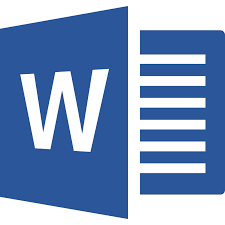Submission Guideline
Review Process
1. All manuscripts will be subjected
to blind peer-reviewing and are expected to meet the
scientific criteria of novelty and academic excellence.
2. The corresponding author is responsible for ensuring
that the article's publication has been approved by all
other co-authors and takes responsibility for the paper
during submission and peer review.
3. Review comments will be communicated to you and you
may require to do necessary revisions and send revised
paper on or before prescribed day.
Non-Presented Paper (No-Show) Policy:
Any accepted paper included in the final program is expected to have at least one author or qualified proxy attend and present the paper at the conference. If a paper is not presented at the conference, the paper will not be published in the conference proceedings or other public access forums. For poster and demo sessions, if the speaker is not present in front of the poster for most of the time during the poster session, this also implies the paper was not presented.
Submission Methods
In order to avoid any inconvenience caused to you and the conference, please note only choose one method to submit your articles, do not submit twice.
Please submit to the conference Electronic Submission System.
Submission Request
1. Submit papers of at least 5 pages, including figures, tables & references, which will be presented in oral presentations. In addition, we welcome abstracts & papers which will be presented in formal presentation sessions. Extra page from Page 6 will be charged.
2. Provide an abstract of no more than 250 words if you only want to do presentation at the conference.
3. Submit papers in PDF (Portable Document Format) and ensure that they are compatible with Adobe Acrobat (English version). Other formats, including Postscript, will not be accepted. Avoid using any special characters or non-standard fonts. We must be able to display and print your submission exactly as we receive it using only standard tools and printers, so we strongly suggest that you use only standard fonts embedded in the PDF file.
4. Ensure that the paper prints well on black-and-white printers, not color printers. Pay particular attention to figures and graphs in the paper to ensure that they are legible without color. Explicitly using grayscale colors will provide best control over how graphs and figures will print on black-and-white printers.
5. Ensure that labels and symbols used in graphs and figures are legible, including the font sizes of tick marks, axis labels, legends, etc.
About Plagiarism Policy
All submitted articles should report original,
previously unpublished research results, experimental or
theoretical. Articles submitted to the conference should
meet these criteria and must not be under consideration
for publication elsewhere. We firmly believe that
ethical conduct is the most essential virtual of any
academic. Hence any act of plagiarism is a totally
unacceptable academic misconduct and cannot be
tolerated. If an author is found to commit an act of
plagiarism, the following acts of sanction will be
taken:
1. Reject the article submitted or delete the article
from the final publications.
2. Report the authors violation to his/her supervisor(s)
and affiliated institution(s).
3. Report the authors violation to the appropriate
overseeing office of academic ethics and research
funding agency.
4. Reserve the right to publish the authors name(s), the
title of the article, the name(s) of the affiliated
institution and the details of misconduct, etc. of the
plagiarist.
Download Templates
| IJTEF Template | JOEBM Template |
 |
 |